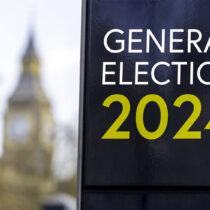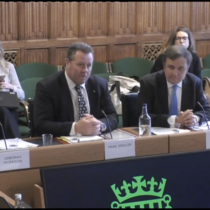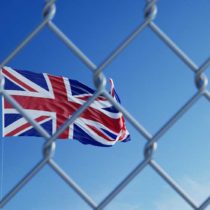It takes WTO to tango
Chris Patten, the last Governor of Hong Kong said in an interview recently that “the polls suggest that something like three quarters think we should leave without a deal without having the faintest idea what it means. I hear people banging on about leaving on WTO terms. They wouldn’t know what WTO terms were if they came up and punched them on the nose.”
He is absolutely right.
The view that that there are successful global economies ‘out there’ that are somehow thriving on unnegotiated ‘WTO’ terms is a myth. The evidence is quite the opposite and its rules have dire economic consequences for countries that have to rely on them. Let’s look at the facts.
First, leaving the EU with no-deal means leaving with almost if not quite nothing. It was clear that the EU was prepared to make some concessions on listing the UK as a 3rdcountry without a prolonged approval procedure or special conditions. But this was within very specific bounds tied to continued regulatory alignment for at least 9 months and no guarantee thereafter.
Any view that the EU has the scope to cut the UK some slack on feeling the full weight of their MFN tariffs is misplaced as the EU itself cannot do this in a way that discriminates in favour of the UK over other 3rdcountries except where a negotiated trade agreement is reached. Signing up to a withdrawal agreement including the Brexit bill will be a prerequisite for this.
Any view that the EU has the scope to cut the UK some slack on feeling the full weight of their MFN tariffs is misplaced
Second, the UK needs to get off on the right foot with WTO and its members. WTO is a rules-based body and the UK will want to ensure that others play by the rules when our turn comes so making others dance to our tune just because we can will be a mistake.
The UK can and indeed has unilaterallyestablished new schedules of goods and will enforce them prior to the completion of the certification procedures required under WTO rules. While possible, it is not the ideal backdrop to future relationships and could result in the suspension of concessions by other Members and the initiation of WTO disputes. Over 20 countries are already disputing the revised TRQ schedules.
Third, the view that other WTO members successfully trade on WTO terms alone is false. No country does it. Since its creation in 1995, most members quickly realised that trading on WTO terms alone would be damaging.
As of 2018 all 164 WTO members had ‘better’ access through some sort of bilateral or regional trade agreement, rather than trading on WTO terms alone even if they have don’t have one with the EU or the US. Even the big players such as the US, Brazil, China and India do not have free trade agreements with the EU, but they all have deals with their closest neighbours.
It’s the ‘closest neighbours’ bit that matters, but before I am accused of jumping to the conclusions a little bit of homework for you. Don’t worry, it isn’t too onerous. Do a simple internet search on the top trade partners of the following countries. Let’s say, Singapore (oft quoted as a bastion of international free trade), China, United States and to mix it up, Argentina.
Question for readers …
What share of trade in each case is with immediate neighbours or regional partners? Pick another country if you wish. I’ll include the results in my concluding article on this subject in August.







